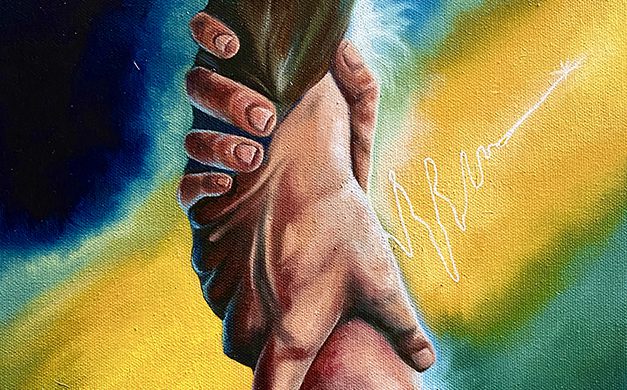The Companion
This archetype represents the sidekick, the number 2, the friend, the cohort and so on. This archetype makes an excellent spouse, coworker, boss, friend, and all-around human being. The qualities of the Companion are many. They are typically easy going, friendly, interested and thoughtful. They prefer to work behind the scenes collaborating and supporting others. The don’t seek out the spotlight but they do enjoy being recognized. The Companion seeks to serve others. They are loyal and supportive. Many who have the archetype of the Companion are quite happy doing menial work such as digging ditches, cleaning up after the dog, making the bed and other such small tasks. They understand that the little and unnoticed things are often the most important. When they give their love, loyalty and devotion to another person, it is complete. The Companion can show up in many different guises. Here are a few examples.
The Faithful Companion
The Faithful Companion is strongly motivated to stay by the side of the other person, through thick and thin. They don’t feel the need to do, but to always be there and they are concerned with never letting the other person down. Samwise Gamgee from The Lord of the Rings is a great example of the Faithful Companion. He is a lowly gardener for Frodo who becomes one of the greatest support heroes in literature. He never leaves Frodo’s side no matter how despairing things become. His optimism and hope never wavers. Sam is also willing to die for Frodo and proves it more than once throughout the story.
The Organizer
The Organizer is a type of the Companion that spends their time and efforts making sure the other person doesn’t have to worry about the details. The Organizer frees up time for the other person to focus on important matters. Typical Organizer types are secretaries and receptionists, nurses, deputies, and such others that work in the background dealing with problem solving and taking care of menial work and oft forgotten details, keeping things going smoothly for the other person. The comic book hero, Batman relies on his butler and valet Alfred to be his true companion. He acts as an organizer, preparing everything from Batman’s clothes to his car. Alfred is a key supporter. He seems to understand the broody Bruce Wayne and acts as confidante, mentor and friend.
The Wingman
The wingman provides the friend with essential support and back up when needed. This type is prepared, honest and anticipating the needs of their friend/partner. They allow others to lean on them for strength and support. Sometimes they provide a necessary kick-in-the-butt too. They are dedicated and loyal, always at the ready. Watson from Sherlock Holmes is a good example of this type. Never far away, always ready with information and a back-up strategy, he keeps Sherlock out of trouble more often than Sherlock solves a mystery. Sherlock would be lost without Watson, who is grounded and responsible.Watson is calm and methodical and every bit the detective but he never steals the limelight from Sherlock.
Some key words associated with the Companion archetype.
- Loyal
- Devoted
- Friendly
- Supportive
- Protective
- Behind the Scenes
- Dedicated
- Kind
- Reliable
- Collaborator
The Betrayer
The Betrayer is the shadow side of the Companion. Self-Betrayal is the foremost experience of the shadow, but self-betrayal inevitably leads to betrayal of others.
The Betrayer loses him or herself in their friendships, marriages, business partnerships, and other relationships. They do this by allowing the other person to state their opinions and make decisions first so that they can mold to the needs and expectations of that person. This causes them to have difficulty separating their needs and desires from the person they are attached to. The Betrayer compromises their personal integrity in this way.
This loss of their personal self leads the Betrayer to believe that others are better than they are. They are thoroughly convinced of the value and importance of others but cannot see the value and importance of themselves because who they are, has been dissolved in the other person. This loss of individuality and self-worth is one of the main challenges for the Betrayer.
The Betrayer conforms their identity and personal desires to that of the other person, only to lose themselves in the process. This causes them to feel bound to the relationship and deeply entangled. So much so, that they are no longer sure where they end, and the other person begins. They are quick to make assumptions because part of their role is to anticipate and provide for the needs and wants of the other person. They sometimes offer help when it is not wanted, or can sometimes act without permission, believing that they are supporting the other person. They feel that their intentions are noble, and others will simply appreciate their contributions. This often leads to resentment and hurt feelings.
The Betrayer become overly committed, believing that more loyalty and support will result in more of what they crave from the other person. Their investment in the other person is so complete that they often neglect, not only themselves, but their other commitments, their dreams and their own ambitions. This kind of self-betrayal leads to much anger and resentment. This can cause the Betrayer to totally abandon people they once claimed to love.
A few key words associated with the Betrayer
- Loss of Identity
- Giving too much Away
- Assuming
- Lack of self-worth
- Self-Abuse
- Over committed
- Irresponsible
- Resentment
- Loss of Connection
- Lack of Integrity



